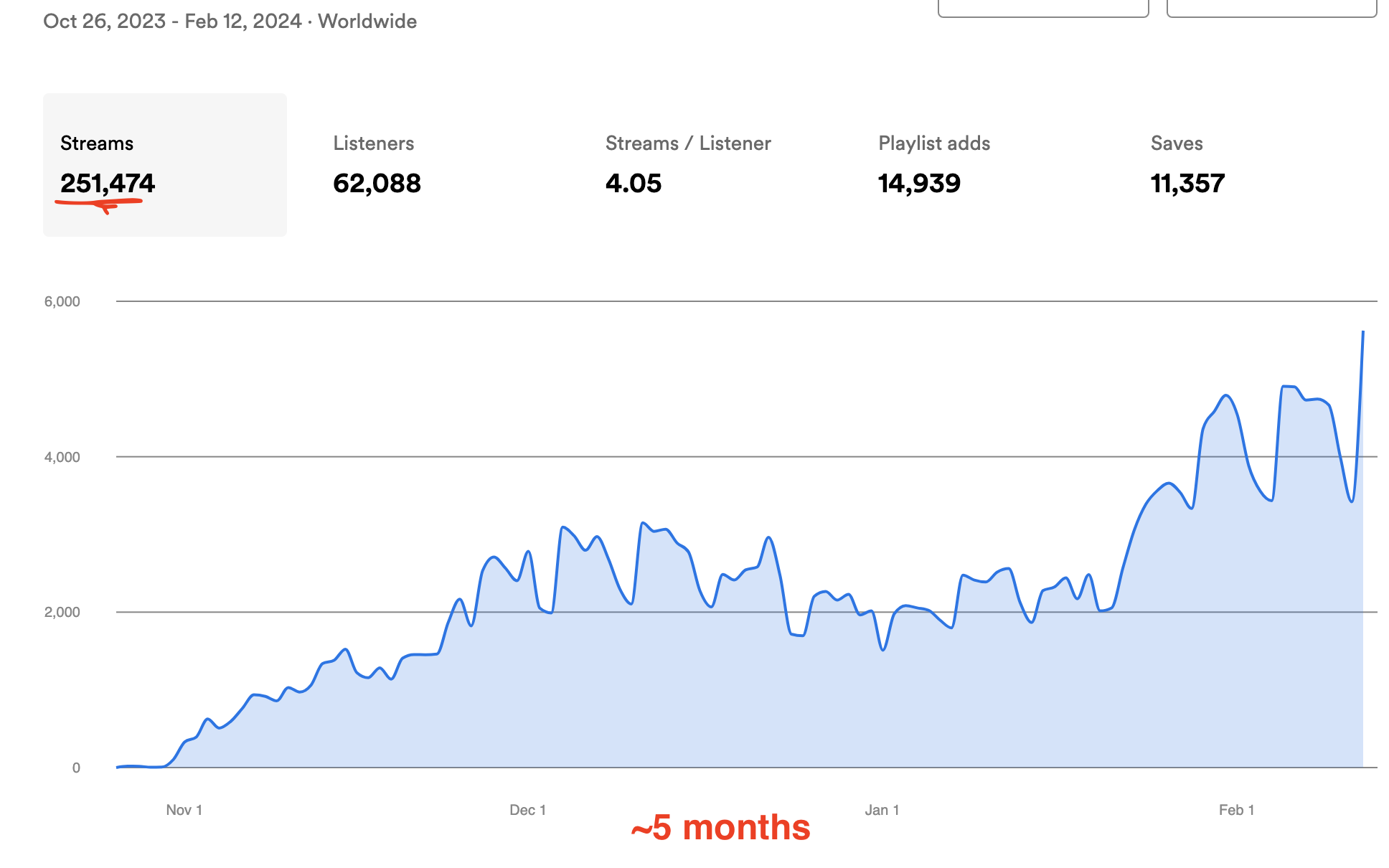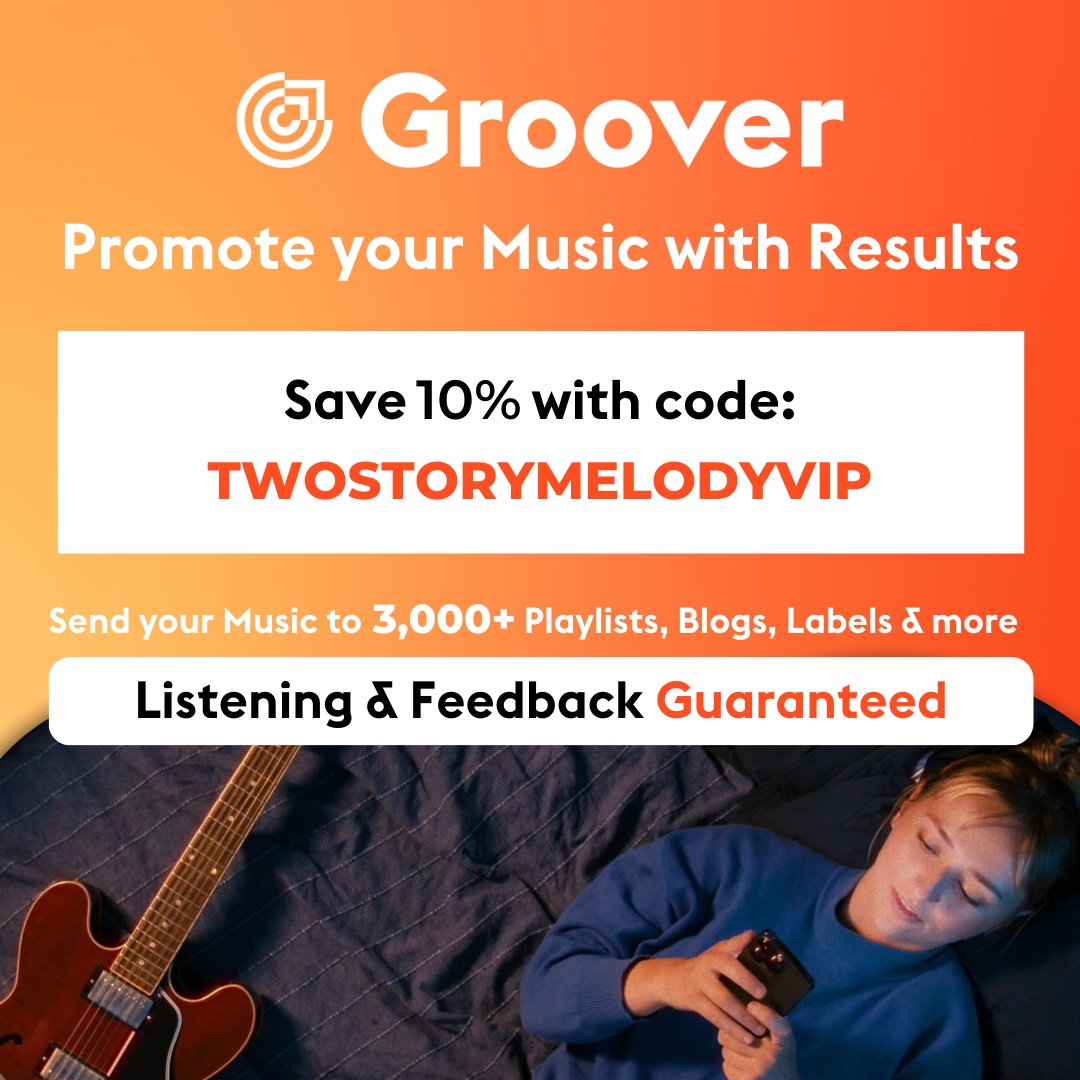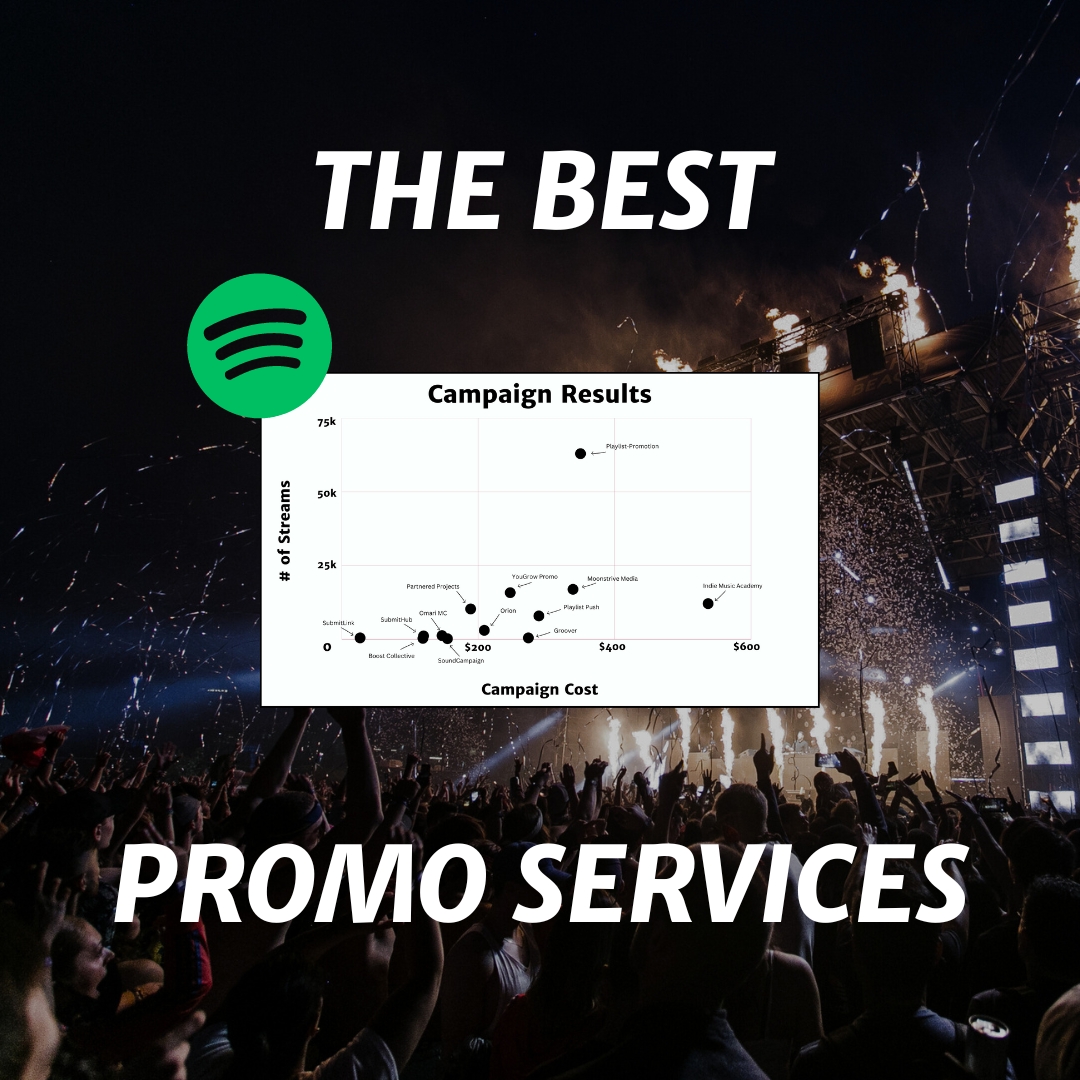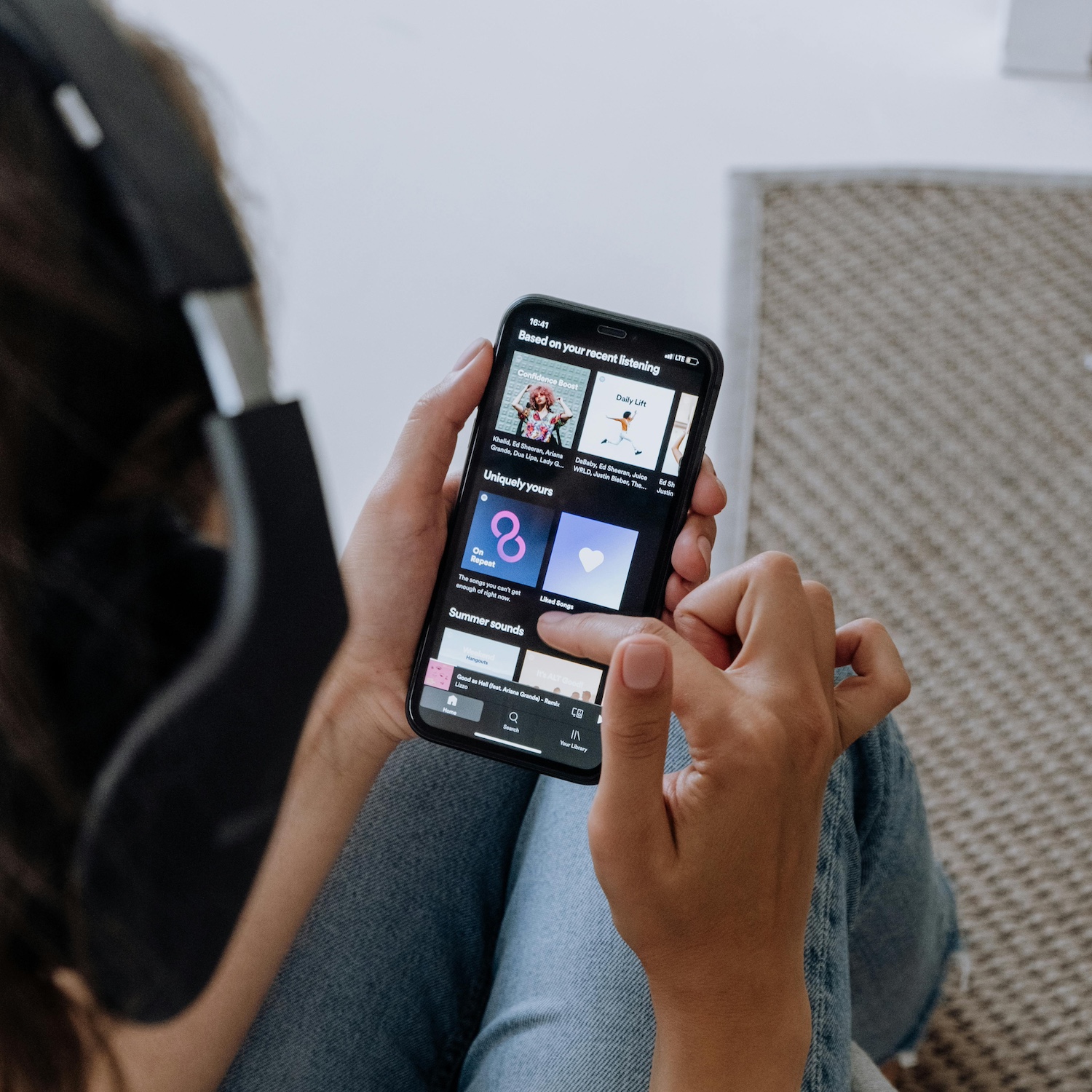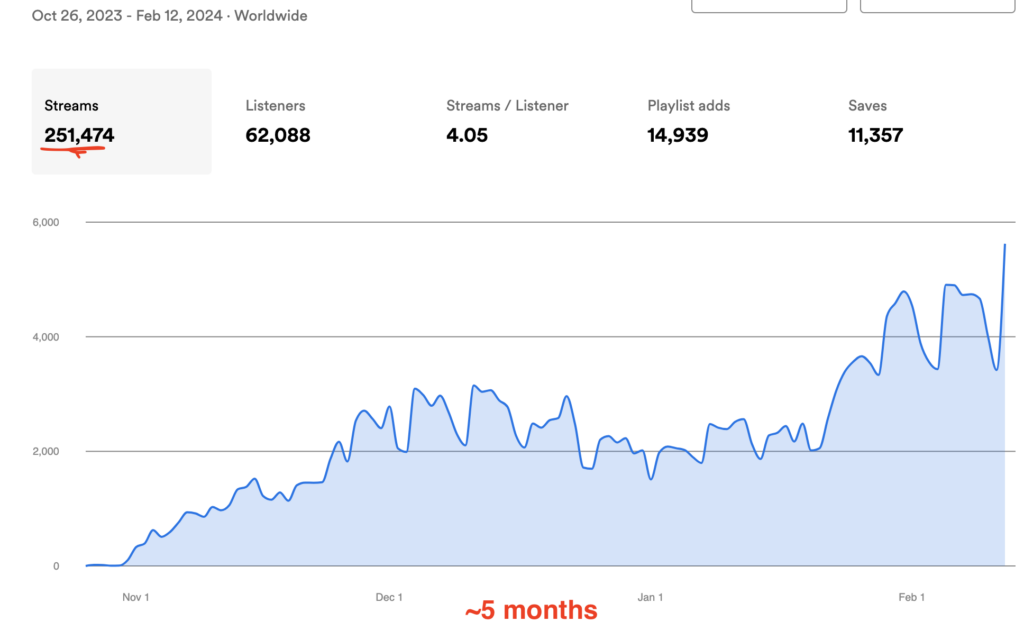We made it.
365 days, a global pandemic, and about a million crises later, we finally rang in 2021 and said a bittersweet goodbye to 2020 (okay, it was really just sweet).
The music industry, along with almost everybody involved in it, was taken for a mostly-downhill ride last year. Live events were nonexistent. Countless recording studios and venues shut down. Zoom co-writes were soul-crushing. Too many of our friends had to quit touring, managing, producing, promoting, and writing, and fall back into jobs outside the industry entirely. One of my good friends, a full-time bass and keys player for a few successful artists and bands in 2019, moved back in with his parents and learned to code. Last June, he told me defeatedly that it was probably a permanent decision.
I couldn’t blame him.
But at the same time, many people have stuck it out, drawn from it, and come out with a clearer focus on their artistry, ambitions, and plans moving forward into the unknown territory that follows such a devastating year. People used the isolation to write full albums, start new businesses, and learn new skills. Some people even downloaded Tik Tok.
Whichever lifeboat 2020 forced you into, I can guarantee that you’re not the only one in it. And if there’s ever been something special about the music industry, it’s that it has always been bursting with a sense of “we’re all in this together” (cue the flash mob). Not only that, but like I said earlier: we made it. 2021, vaccines, longer days, and new opportunities for growth are here. Last year is now just a chapter in the music industry’s storied history.
So whoever you are – however hard last year was on you – there is reason for hope. This is going to be a year of professional and artistic growth for all of us. Here are some tips for making this year your best year yet.
1. Reflect.
Some people hate making resolutions every New Year. I get it; it can feel like an arbitrary excuse to put off changing your life until a certain day when everybody does it. But even if you’re super punk-rock and try to avoid what everybody else is doing, there is still something about January 1st every year that just feels different. Turning over our calendars gives us an obvious, pre-folded corner to mark our place. We have a glaring, permanent label to apply to anything that happened in the last 365 days.
So, we might as well use it to our advantage. Take a moment at the beginning of the New Year to ask yourself a few questions: What did I do last year that I am proud of? What growth did I experience? What did I learn? What did I fail at? What can I carry with me, build upon, or throw away? Where am I coming from, and where do I want to go?
2. Set number-based goals.
Setting goals is proven to give you a more positive outlook on life and decrease the negative effects of small failures. People in the music industry are fortunate to have easy access to stats that track their progress: streaming numbers, Instagram followers, YouTube subscribers, etc. These are all valuable, and there are ways to grow them. However, there are other metrics that are grittier, harder to boost, and more telling of a person’s success.
If you’re a songwriter, make it a goal to write a certain amount of songs. If you’re an artist, try to play a certain number of shows. If you’re a manager, plan to expand your contact list by a certain amount of people. You might surprise yourself by reaching goals in December that, in January, seemed like pipe-dreams.
3. Set abstract goals.
Not every area of growth can be given a number. At the risk of sounding like a self-help coach or motivational speaker (both of which I am not): you can’t exactly measure things like optimism, contentedness, work ethic, or open-mindedness. The progress is often slow, and there’s no finish line. There’s just room and reason to grow.
Because it’s centered around art and creativity, the music industry is inherently built on people, not algorithms; so set some of your goals around traits instead of numbers. This is crucial in every industry, but especially in one based directly on interaction and personal connection. Goal-setting in this mindset is a way to shape your identity, not just your resume. Instead of asking “What do I want to accomplish?” try asking “What kind of person do I want to be?”
4. Find your people.
Billie Eilish started making music in her bedroom with her brother simply because they both loved to do it. Neither of them started by moving to a new town so they could make Grammy-winning friends who would reel them up to the top with a rope. They grew professionally together, because they came from the same place.
Most people reading this will be fairly new to the music industry, which means you probably are not yet a famous producer with a rich, successful network. You’re more likely to be a college student just dipping your feet into tour management with your roommate’s band, or a part-time frozen yogurt chef writing songs with your friends on the weekends. That’s perfect. Stick with the people you know now, because the music industry is constantly changing its guard, and every great band, label, and creative collective started out just as unimpressively as you. Find people you love and work well with, and keep climbing together.
5. Take the small gig.
I heard an interview with Ed Sheeran (to those of you who are instantly turned off by him, hear me out) in which he talked about the early stages of his career. Essentially, he dropped everything and started traveling to play as many shows as he could. He played 312 gigs in 2009, still yet to make any major breakthrough. He was sleeping on couches. Sometimes, he was playing to nobody (The Beatles did something pretty similar in Germany before they blew up). But what could be overlooked as desperation and constant failure was actually based on a very calculated theory. The idea behind this is twofold:
First, like anything, the more Sheeran played live music, the better he got at playing live music (I’m sure you’ve all heard the “Ten Thousand Hour Rule” made famous by Malcolm Gladwell.) There are so many aspects of a winsome live show that are impossible to recreate in your bedroom: banter, crowd interaction, reacting quickly to mistakes or malfunctions, and overcoming stage fright, just to name a few. Small gigs are the only way to put in meaningful practice with low stakes. By the time Sheeran was playing stadiums, he had seen every scenario and honed every skill against the grindstone of extensive experience.
Second, small gigs are often seen like they’re not worthwhile because, to use his words, “they’re not cool.” Sheeran’s response to this was straightforward: “I think my music is cool, so any gig I play will be cool.” Playing small, seemingly lame shows was a practice in confidence, and enabled Sheeran to detach from getting his worth from what others were thinking about his art.
In regards to live music in 2021 especially, the reality is that when live events come back, show sizes are going to start small and grow gradually. The artists who have cultivated a willingness to play the small gig (coffee shops, house shows, backyards) will have an advantage over the ones who are used to headlining stadiums.
So, whatever you’re doing, whether you’re playing shows or managing a band or starting a blog or running a business, this rule certainly applies to you: take the small gigs. They’re often more fun than you think they will be, and they’re the perfect training ground for whatever skills will eventually take you to the top of the industry.
6. Cascade your singles.
If you’re an artist or band, this one is specifically for you. This is a technique that was made popular last year, and the idea is simple: instead of releasing singles one by one, stack them as you go. If you do this, your second single will also include your first; your third single will also include singles one and two; and so on.
The strategy behind this is based solely in the context of streaming. On services like Spotify and Apple Music, algorithms keep music playing even after the song a listener clicked on has ended. If you keep releasing one song at a time, then anyone who clicks on your song will hear it, but immediately after it ends, another song will play that is unlikely to be one of yours. Cascading your singles ensures that, after you release your first single, any subsequent singles which listeners click on will be followed by the ones that came before it. In simple terms, listeners will stream more of your music. And in case it isn’t clear, that’s a good thing.
I have a friend who did this with the singles from his last record. When he released the first single, it racked up about a million Spotify streams in a month, but it was clearly tapering off by the end of the month. But when he released his second single, cascading it so that it also included his first single, his first single accumulated another million streams (his second single also received about a million). Essentially, cascading ensured that the previous singles would get attention with every release. It’s genius, and there’s no reason not to do it.
7. Keep connecting.
I read this painful/hilarious article from early last year about how the concert industry was in for one of its best years ever. Streaming services were just starting to open up opportunities for smaller artists to find success on their platforms. Because of the tech revolution and a towering economy, more and more independent labels, publishing companies, venues, blogs, and other businesses were getting ready to explode onto the scene. Unfortunately, we all know what happened.
In a year like 2020 (not that there’s ever really been a year like 2020), it was difficult to find the energy or optimism to keep working during what was essentially an industry collapse. It was even harder to find the coordinated-on-zoom time or the socially-distanced space to connect with people to work with.
It’s easy to feel defeated when looking at last year. But there was something equalizing and inspiring about a period so paralyzing: it brought to light the importance of human-to-human connection, and it showed us that we’re not alone.
This year, as businesses and artists struggle to get their feet back under them, there’s sure to be a sense of contagious togetherness as we all work to rebuild what was lost. If “finding your people” is important, meeting new people is just as worthwhile. This year, look for opportunities to expand your community, bring people in, travel, express yourself freely, and do some things that might make you uncomfortable. The more people you connect with, the more places you go, and the more experiences you have, the more the music industry, of which you are a crucial part, will benefit.
8. Keep learning.
If you’re reading an article like this, you’re off to a good start. That’s amazing. Don’t stop.
Like pretty much every field, the music industry is growing and changing at a rate unheard of in human history. New technology, techniques, ideas, genres, business models, and equipment are springing up everywhere, all the time. It’s tempting to get overwhelmed and stick with what you know.
I promise you, it is always worth your while to keep yourself up to date with all the newness. Especially in the context of an industry built around creativity, progress is only pushed forward by people who adopt new practices, technologies, and ideas into their unique skill sets and personalities. Once you get good at something, go and learn how to do something else, because true originality is always born from a desire to learn and grow, both professionally and personally.
Let this be a year you don’t just survive in the music industry. Let this be a year you thrive in it.


